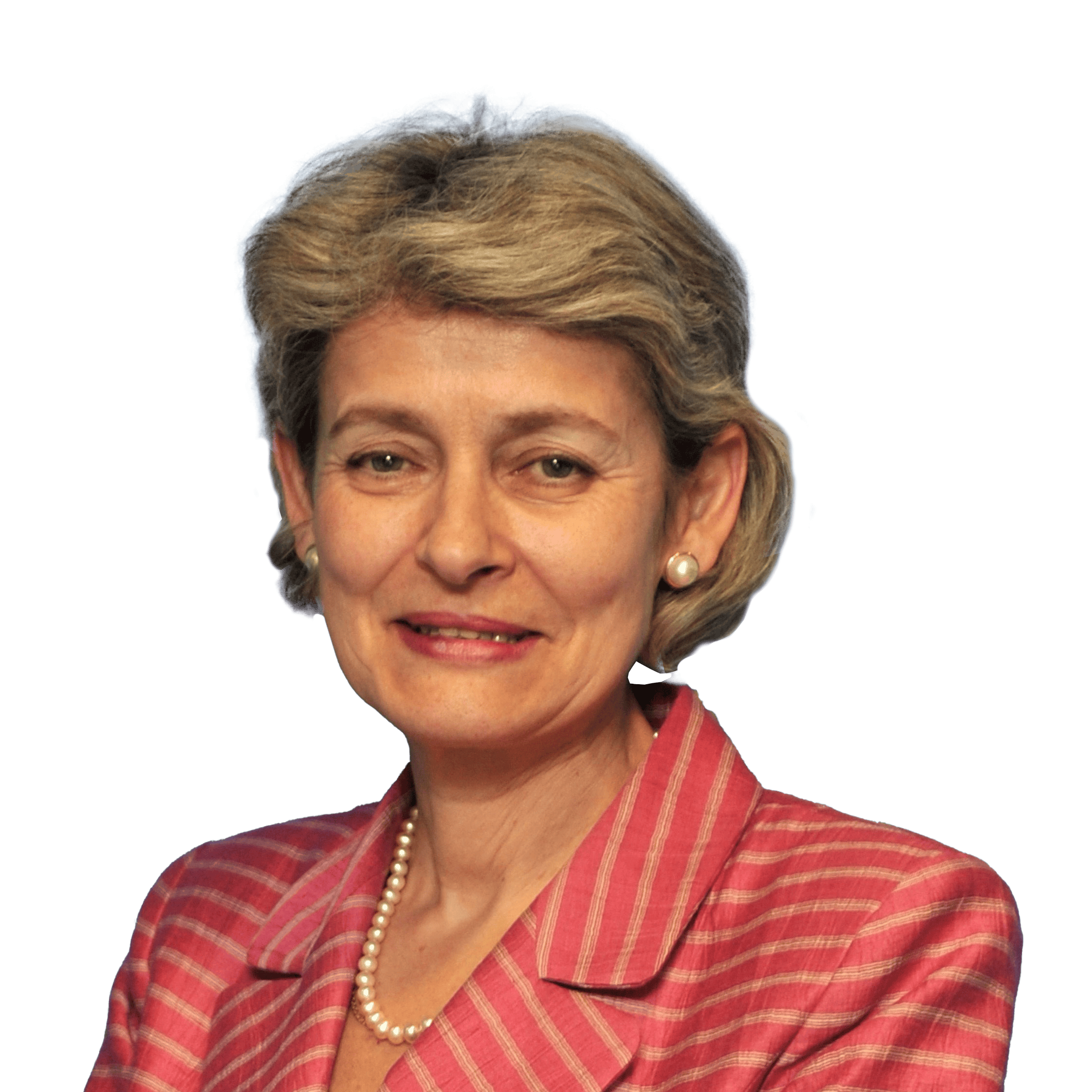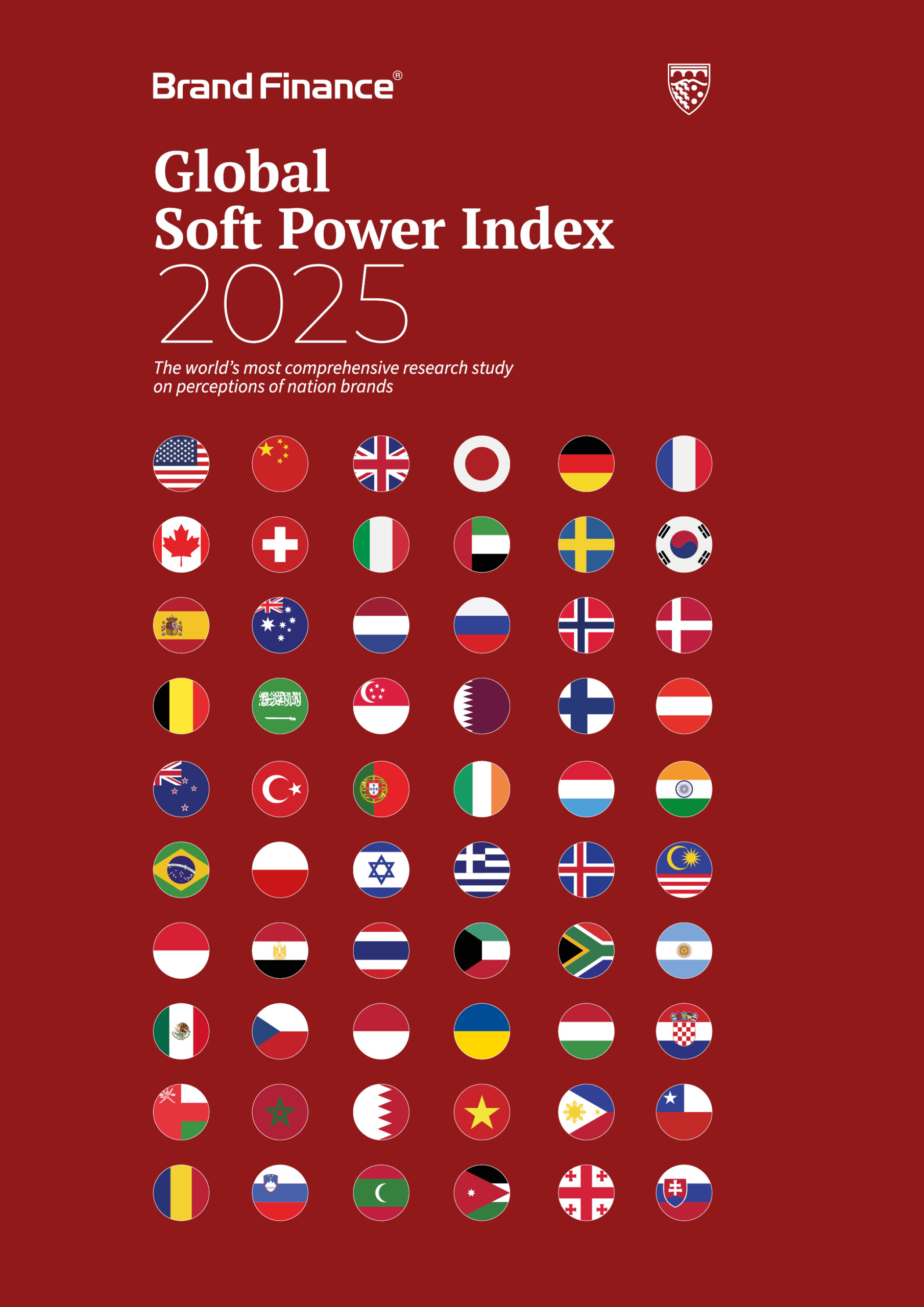This article was originally published in the Brand Finance Global Soft Power Index 2025

Former Director-General,
UNESCO
This year the United Nations Organisation for Education, Culture and Sciences (UNESCO), like the UN, will celebrate its 80th anniversary.
UNESCO was founded in London, at the Institute for Civil Engineering, as the first UN Specialised Agency, and was the expression of a different approach towards the post-war world reconstruction. The idea emerged in 1942, when the United Kingdom organised the first Conferences of Allied Ministers of Education, presided by Ms. Ellen Wilkinson, Minister of Education of the UK.
I always find this inspiring. The war was far from won. Despite everything, in the very midst of conflict, the UK and the allied forces were promoting cooperation in education, culture and science as a way to build lasting peace.
The term “Soft Power” was not coined yet, but the words of the UNESCO Constitution were a strong embodiment of the much-needed power priority shift: “Since wars start in the minds of men, it is in the minds of men that the defences of peace must be constructed.”
I find this even more inspiring today, amid the multiple crises we are living through, when multilateral “grammar” is slowly regressing and the balance of power is supplanting diplomacy and collaboration for the global public good.
During its 80 years, UNESCO has served as a global collaborative platform for intellectual debate, fostering partnerships, encouraging the creation of knowledge and launching new ideas. This is how the concept of education for all, knowledge-based societies, expressions of cultural diversity, global citizenship education, ethics of science, ethics of climate change and now ethics of AI were born.
Among them, there is no other concept that captures in such a powerful and lasting manner the universality of humanity’s creativity as the World Heritage, embodied in the UNESCO Convention on Word Cultural and Natural Heritage and one the most widely ratified international legal instrument today.
With its 1223 sites, the World Heritage List is an open book of humanity’s common history and a powerful tool of intercultural dialogue and cultural diplomacy.
Based on the respect and recognition of the “outstanding universal value” of monuments, sites, temples, historic cities and landscapes that embrace all the diversity of humanity, the World Heritage is one of the most visionary and transformative ideas of the 20th century. This is the idea that national heritage belonging to different cultures may represent “outstanding universal value” for all and should be protected by international law.
Humanity stands united in all its diversity around shared values, and all cultures are different but that difference does not divide - it unites. When a World Heritage site is destroyed anywhere in the world, we are all diminished, even if it is from another region, another period, another culture, another religion.
The adoption of the concept of cultural heritage as having a “universal” value represented a monumental shift in the thinking about culture and arts as only a national identity expression.
It brought together the universal and the national, the global and the local, making a unique blend of values for cultural patrimony and visual arts all across time and space as heritage, belonging both to a unique culture as well as to all of humanity at the same time.
In the powerful lines of the Convention:
“Outstanding universal value means cultural and/or natural significance which is so exceptional as to transcend national boundaries and to be of common importance for present and future generations of all humanity. As such, the permanent protection of this heritage is of the highest importance to the international community as a whole”.
It is in sad moments that we come to appreciate the power of heritage to understand who we are and where we come from. The destruction of cultural heritage, what I called at the time “cultural cleansing” by extremists in the Middle East during the conflicts in Afghanistan, Mali, Syria and Iraq, not only shocked us profoundly, but made us revisit our relations with history, heritage, identity and common values.
The deliberate destruction of humanity’s cultural heritage and looting of cultural sites also brought about a new understanding about why culture matters and its link with peace and security. The adoption of UN Security Council Resolution 2347 of March 2017 broke new ground. It focused attention on culture and heritage preservation as a tool for peace and reconciliation, as well as the need for cultural “literacy” and intercultural dialogue.
And this is where “Soft Power” found its expression.
UNESCO helped save the temples of Nubia, in Egypt.
UNESCO rebuilt the old bridge of Mostar, in Bosnia and Herzegovina, destroyed during the war in ex-Yugoslavia.
UNESCO rebuilt all of the 14 mausoleums destroyed by extremists in Timbuktu, Mali.
Today UNESCO is rebuilding the “spirit of Mosul” in Iraq.
The rising importance of heritage protection reveals the role it plays in the “Soft Power” politics today, exacerbated by the geopolitics, globalisation and connectivity. It is more than obvious that cultural diplomacy is becoming ever more important in the spectrum of both traditional and new tools of diplomatic and political interaction between countries – both as a tool of national diplomacy and as cultural diplomacy “beyond national borders” in the search of the “common global good.”
In every corner of the world, our common history is written into monuments and cities, in the arts and in traditions passed down through generations.
This history defines us, connects us, and shapes our future, but it is also under threat of being erased by time, conflict, and neglect. The preservation of cultural heritage is not just a task for a few—it’s a responsibility we all share, and the power of global collaboration can make the difference between remembering our past and heritage versus losing it forever.
Cultural heritage is not just about bricks and stones, but how we belong to each other. Our heritage holds our identities and connects us, and cultural sites where history lives on are also vital to the future of our common humanity.

